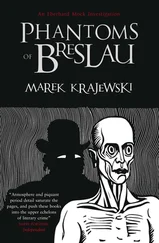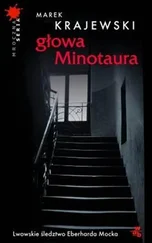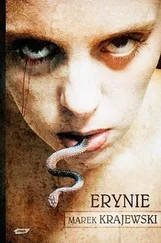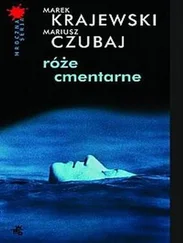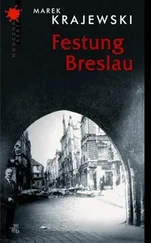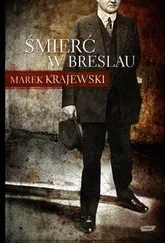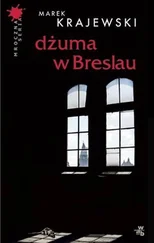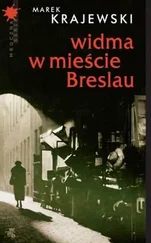Marek Krajewski - Death in Breslau
Здесь есть возможность читать онлайн «Marek Krajewski - Death in Breslau» весь текст электронной книги совершенно бесплатно (целиком полную версию без сокращений). В некоторых случаях можно слушать аудио, скачать через торрент в формате fb2 и присутствует краткое содержание. Жанр: Полицейский детектив, на английском языке. Описание произведения, (предисловие) а так же отзывы посетителей доступны на портале библиотеки ЛибКат.
- Название:Death in Breslau
- Автор:
- Жанр:
- Год:неизвестен
- ISBN:нет данных
- Рейтинг книги:3 / 5. Голосов: 1
-
Избранное:Добавить в избранное
- Отзывы:
-
Ваша оценка:
- 60
- 1
- 2
- 3
- 4
- 5
Death in Breslau: краткое содержание, описание и аннотация
Предлагаем к чтению аннотацию, описание, краткое содержание или предисловие (зависит от того, что написал сам автор книги «Death in Breslau»). Если вы не нашли необходимую информацию о книге — напишите в комментариях, мы постараемся отыскать её.
Death in Breslau — читать онлайн бесплатно полную книгу (весь текст) целиком
Ниже представлен текст книги, разбитый по страницам. Система сохранения места последней прочитанной страницы, позволяет с удобством читать онлайн бесплатно книгу «Death in Breslau», без необходимости каждый раз заново искать на чём Вы остановились. Поставьте закладку, и сможете в любой момент перейти на страницу, на которой закончили чтение.
Интервал:
Закладка:
Madame understood men well and was happy if she could meet their demands. She had recently experienced such a moment of joy in finding for the Deputy Head of the Criminal Department of the Police Praesidium, Counsellor Eberhard Mock, two girls who could play chess. Madame especially liked this stocky man with his thick, black, wavy hair. The Counsellor never forgot to bring flowers for Madame and small gifts for the girls who were glad to serve him. He was level-headed and taciturn, he loved charades, bridge, chess and curvaceous blondes. He could gratify his passions at Madame le Goef’s without inhibition. He would arrive at midnight every Friday, enter by the side door and, without pausing to watch whatever was being performed on the stage, go to his favourite room where his two odalisques would be waiting for him. They would change him into a silk dressing gown, feed him caviar and give him red Rhine wine to drink. Mock would sit still, though his hands would rove over the alabaster skin of his slaves. After dinner, he would settle down with one of them to a game of chess. The other, in the meantime, would go under the table and do something known already to pre-historic peoples. The girl playing chess with Mock had been instructed that every successful move was assigned a specific erotic configuration. So, after eliminating a pawn or a bishop, whatever, Mock would get up from the table and land on the sofa with his partner where, for a few minutes, they would enact the configuration.
According to rules drawn up by himself, Mock was not allowed to satisfy his desire if either of his opponents called checkmate. It had happened once, and he had got up, given the girls each a flower and left, masking his anger and frustration behind a jester’s smile. He had never allowed himself to lose concentration at the chessboard again.
After one such long session, Mock was resting on the sofa reading his reflections on human characters to the girls. This was his third passion, one which he revealed only in his favourite club. The Criminal Counsellor — a lover of ancient literature who surprised his subordinates with long Latin quotations — envied Nepos and Theophrastus and reconstructed, not without some literary pretensions, the characteristics of people he met. He based his findings both on his own observations and on police files. On average, he would put together a description of one person a month and top up existing ones with fresh facts. These descriptions and newly arising characteristics created great confusion in the girls’ tired heads. Be that as it may, they sat at Mock’s feet, looked into his round eyes and felt the tide of happiness rise within the client.
Indeed, Criminal Counsellor Mock was happy and when he left — which was usually at about three in the morning — he would give small presents to the girls and a tip to the sleepy porter. Mock’s good humour was felt even by the cabby who took him along Grabschener Strasse, quiet at this hour, to the grand tenement on Rehdigerplatz, where the Counsellor would fall asleep at his wife’s side, listening to the ticking of the clock and the shouts of carters and milkmen.
Unfortunately, on the night of the 12th to 13th May, Counsellor Eberhard did not experience happiness in the arms of Madame le Goef’s girls. He was just playing out an interesting Sicilian defence when Madame tapped gently on the door.
A moment later she tapped again. Mock sighed, adjusted his dressing gown, rose and opened the door. His face was expressionless, but Madame could imagine what that man felt when someone interrupted an elaborate erotic-chess manoeuvre.
“Dear Counsellor,” the owner of the club spared herself what she knew would be futile apologies. “Your assistant is downstairs.”
Mock thanked her politely, quickly dressed — helped by his obliging geishas, one of whom tied his tie while the other buttoned his trousers and shirt — took two small boxes of chocolates from his briefcase and said goodbye to the inconsolable chess-players. He threw a goodnight to Madame and ran downstairs, colliding forcefully with his assistant, who was leaning against the crystal shade of a lamp in the hall. The crystals clinked in warning.
“Marietta von der Malten, the Baron’s daughter, has been raped and murdered,” panted Max Forstner.
Mock ran down the steps into the drive, got into his black Adler, slammed the door a little too hard and lit a cigarette. Forstner sat eagerly behind the steering wheel and turned on the engine. They moved off in silence. They had crossed the bridge over the Lohe before Mock finally gathered his thoughts.
“How did you find me here?” asked the Counsellor, carefully observing the walls of the Communal Cemetery flitting past on their right. The triangular roof of the crematorium was clearly silhouetted against the sky.
“The Criminal Director Doctor Muhlhaus suggested where you might be, sir.” Forstner shrugged as if he would have preferred to say: “Everyone knows where Mock is on a Friday.”
“Don’t permit yourself any such liberties, Forstner.” Mock looked at him intently. “You are still only my assistant.”
This sounded threatening, but it did not make the slightest impression on Forstner. Mock did not lower his gaze from the broad face (“small, fat, red-haired scoundrel,” he was thinking) and for the n thtime resolved, against his better judgment, to destroy his insolent subordinate. This was not going to be easy since Forstner had been received into the Criminal Department when the new President of Police, the fanatical Nazi, Obergruppenfuhrer S.A. Edmund Heines, had taken over command. Mock had learned that his assistant was not only Heines’ protege but boasted of having good relations with the new Supreme President of Silesia, Helmuth Bruckner, who had been imposed upon them by the Nazis shortly after they had won the elections to the Reichstag. But the counsellor had worked in the police for nearly a quarter of a century and knew that anyone could be destroyed. While he had the authority, while the Chief of the Criminal Department was the old Freemason and liberal Heinrich Muhlhaus, he could keep Forstner away from serious cases and transfer him, for example, to booking prostitutes outside the Savoy Hotel on Tauentzienplatz or checking the credentials of homosexuals beneath the statue of Empress Auguste on the promenade by the School of Fine Arts. What most irritated Mock was that he did not know any of Forstner’s weaknesses — his files were clean and day to day observation prompted only one, concise description: “a dumb stickler”. The close bond with Heines, who was well known to be a homosexual, did provide Mock with murky suspicions, but that was not enough to bend this “mole”, Gestapo agent Forstner, to his will.
They approached Sonnenplatz. The city pulsated with subcutaneous life. A tram carrying workers from the second shift at the Linke, Hofmann amp; Lauchhammer factory grated on the corner, gas lamps flickered. They turned right into Gartenstrasse: carts delivering potatoes and cabbages crowded by the covered market, the caretaker of the art-nouveau tenement on the corner of Theaterstrasse was repairing a lamp and cursing, two drunks were trying to accost prostitutes proudly strolling in front of the Concert House with their parasols. They passed the Kotschenreuther and Waldschmidt Car Showroom, the Silesian Landtag building and several hotels. The night sky dispersed a light, misty rain.
The Adler drew up on the far side of Main Station, on Teichackerstrasse, opposite the public baths. They got out. Their coats and hats were soon covered with watery dust. Drizzle settled on Mock’s dark stubble and Forstner’s clean-shaven cheeks. Tripping over the rails, they made their way to a side track. Uniformed policemen and railwaymen stood all around, talking in raised voices. The police photographer, Helmut Ehlers, with his trademark limp, was just approaching the scene.
Читать дальшеИнтервал:
Закладка:
Похожие книги на «Death in Breslau»
Представляем Вашему вниманию похожие книги на «Death in Breslau» списком для выбора. Мы отобрали схожую по названию и смыслу литературу в надежде предоставить читателям больше вариантов отыскать новые, интересные, ещё непрочитанные произведения.
Обсуждение, отзывы о книге «Death in Breslau» и просто собственные мнения читателей. Оставьте ваши комментарии, напишите, что Вы думаете о произведении, его смысле или главных героях. Укажите что конкретно понравилось, а что нет, и почему Вы так считаете.

